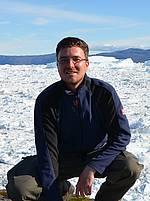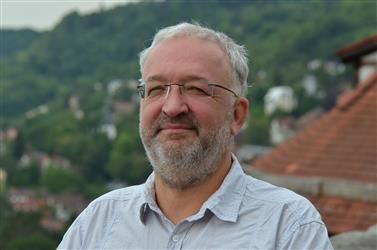ProjektMechanisms of Soil Erosion under Forest - The Role of Biological Soil Crusts
Grunddaten
Titel:
Mechanisms of Soil Erosion under Forest - The Role of Biological Soil Crusts
Laufzeit:
01.01.2019 bis 31.12.2022
Abstract / Kurz- beschreibung:
Bodenerosion zählt weltweit zu den gravierendsten Umweltproblemen. Sie tritt vor allem auf landwirtschaftlich genutzten Flächen auf und beeinträchtigt Bodenfunktionen maßgeblich. In Waldökosystemen können Erosionsprozesse die Böden ebenso verändern, allerdings in geringerem Umfang. Dies ist wahrscheinlich ein wesentlicher Grund, warum Mechanismen der Bodenerosion unter Wald bislang wenig untersucht sind. Sie finden sich vornehmlich im Bereich von Pfaden, welche natürlicherweise z.B. durch Wildwechsel hervorgerufen werden. Aktuell sind Rückegassen nach der Holzernte bevorzugte Leitbahnen der Erosion. Das Freilegen von Waldböden schafft nicht nur eine unbedeckte Bodenoberfläche, die durch auftreffende Regentropfen direkt beeinträchtigt wird, sondern verändert die Umweltbedingungen insgesamt. Es entsteht eine Pioniervegetation aus biologischen Bodenkrusten (Biokrusten). Diese bilden wahrscheinlich eine wesentliche Steuergröße für Erosionsprozesse unter Wald, allerdings fehlen entsprechende Untersuchungen bislang weitgehend.
Um diese Wissenslücken zu schließen will das beantragte Forschungsprojekt Bodenerosion im Bereich von Rückegassen unter dem Einfluss von Biokrusten in einem süddeutschen Mischwald (Schönbuch, Baden-Württemberg) erforschen. In einer integrierten bodenkundlich-ökologischen Studie sollen drei Erosionsexperimente mit simuliertem und natürlichen Niederschlag auf verschiedenen Ausgangssubstraten durchgeführt werden. Gleichzeitig soll die bodendeckende Pioniervegetation botanisch erfasst und deren DNA sequenziert werden.
Wir nehmen an, dass (H1) Biokrusten einen wesentlichen Einfluss auf die Reduzierung von Sediment- und Nährstoffausträgen sowie den Oberflächenabfluss haben. Ihre Zusammensetzung und ihr erosionsreduzierender Charakter ändern sich mit dem unterliegenden Substrat und der damit verbundenen unterschiedlichen Baum- und Strauchschicht (H2). Sie schützen den Boden nicht nur physikalisch, durch die Abmilderung des Tropfenschlags, sondern ebenso durch die Akkumulation von organischer Substanz und stärkere Aggregierung (H3). Diese Hypothesen sollen in einem ersten Erosionsexperiment (Ex I) in situ mit einem Laserscanner (Ia) und kleinmaßstäblichen Messrinnen (Ib) in verschiedenen Rückegassen getestet werden. In einem weiteren Experiment (Ex II) werden ausgesuchte Moosarten in einer Rückegasse unter kontrollierten Bedingungen aufgebracht und hinsichtlich ihrer erosionsmindernden Wirkung analysiert. In einem dritten Experiment (Ex III) werden Bodensubstrate aus verschiedenen Rückegassen nach Entfernen der Biokrusten auf ihre Stabilität getestet. Die Ergebnisse der drei Experimente sollen nicht nur zu einem besseren Verständnis des Einflusses von Biokrusten auf Bodenerosionsprozesse in temperierten Wäldern führen, sondern auch deren Erosionsminderungspotenzial quantifizieren. So können Empfehlungen für die Anwendung von Biokrusten, in diesem Fall ausgesuchte Moosarten, im Bodenschutz erfolgen.
Um diese Wissenslücken zu schließen will das beantragte Forschungsprojekt Bodenerosion im Bereich von Rückegassen unter dem Einfluss von Biokrusten in einem süddeutschen Mischwald (Schönbuch, Baden-Württemberg) erforschen. In einer integrierten bodenkundlich-ökologischen Studie sollen drei Erosionsexperimente mit simuliertem und natürlichen Niederschlag auf verschiedenen Ausgangssubstraten durchgeführt werden. Gleichzeitig soll die bodendeckende Pioniervegetation botanisch erfasst und deren DNA sequenziert werden.
Wir nehmen an, dass (H1) Biokrusten einen wesentlichen Einfluss auf die Reduzierung von Sediment- und Nährstoffausträgen sowie den Oberflächenabfluss haben. Ihre Zusammensetzung und ihr erosionsreduzierender Charakter ändern sich mit dem unterliegenden Substrat und der damit verbundenen unterschiedlichen Baum- und Strauchschicht (H2). Sie schützen den Boden nicht nur physikalisch, durch die Abmilderung des Tropfenschlags, sondern ebenso durch die Akkumulation von organischer Substanz und stärkere Aggregierung (H3). Diese Hypothesen sollen in einem ersten Erosionsexperiment (Ex I) in situ mit einem Laserscanner (Ia) und kleinmaßstäblichen Messrinnen (Ib) in verschiedenen Rückegassen getestet werden. In einem weiteren Experiment (Ex II) werden ausgesuchte Moosarten in einer Rückegasse unter kontrollierten Bedingungen aufgebracht und hinsichtlich ihrer erosionsmindernden Wirkung analysiert. In einem dritten Experiment (Ex III) werden Bodensubstrate aus verschiedenen Rückegassen nach Entfernen der Biokrusten auf ihre Stabilität getestet. Die Ergebnisse der drei Experimente sollen nicht nur zu einem besseren Verständnis des Einflusses von Biokrusten auf Bodenerosionsprozesse in temperierten Wäldern führen, sondern auch deren Erosionsminderungspotenzial quantifizieren. So können Empfehlungen für die Anwendung von Biokrusten, in diesem Fall ausgesuchte Moosarten, im Bodenschutz erfolgen.
Schlüsselwörter:
Biologische Bodenkrusten (biological soil crusts)
Rückegassen (skid trails)
Bodenerosion
soil erosion
Bodenkunde
soil science
Bodeneigenschaften
soil properties
Wald
forest
Beteiligte Mitarbeiter/innen
Leiter/innen
Forschungsbereich Geographie
Fachbereich Geowissenschaften, Mathematisch-Naturwissenschaftliche Fakultät
Fachbereich Geowissenschaften, Mathematisch-Naturwissenschaftliche Fakultät
Ansprechpartner/innen
Mathematisch-Naturwissenschaftliche Fakultät
Universität Tübingen
Universität Tübingen
Fachbereich Geowissenschaften
Mathematisch-Naturwissenschaftliche Fakultät
Mathematisch-Naturwissenschaftliche Fakultät
Forschungsbereich Geographie
Fachbereich Geowissenschaften, Mathematisch-Naturwissenschaftliche Fakultät
Fachbereich Geowissenschaften, Mathematisch-Naturwissenschaftliche Fakultät
Fachbereich Geowissenschaften
Mathematisch-Naturwissenschaftliche Fakultät
Mathematisch-Naturwissenschaftliche Fakultät
Forschungsbereich Geographie
Fachbereich Geowissenschaften, Mathematisch-Naturwissenschaftliche Fakultät
Fachbereich Geowissenschaften, Mathematisch-Naturwissenschaftliche Fakultät
SFB 1070 - RessourcenKulturen. Soziokulturelle Dynamiken im Umgang mit Ressourcen
Sonderforschungsbereiche und Transregios
Sonderforschungsbereiche und Transregios
Forschungsbereich Geographie
Fachbereich Geowissenschaften, Mathematisch-Naturwissenschaftliche Fakultät
Fachbereich Geowissenschaften, Mathematisch-Naturwissenschaftliche Fakultät
Lokale Einrichtungen
Forschungsbereich Geographie
Fachbereich Geowissenschaften
Mathematisch-Naturwissenschaftliche Fakultät
Mathematisch-Naturwissenschaftliche Fakultät
Geldgeber
Bonn, Nordrhein-Westfalen, Deutschland



